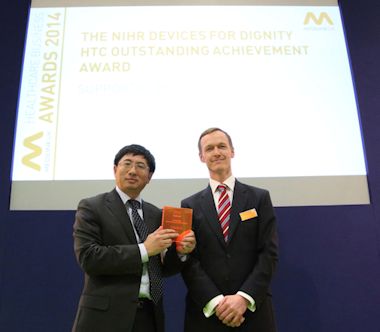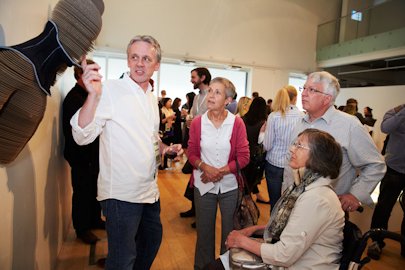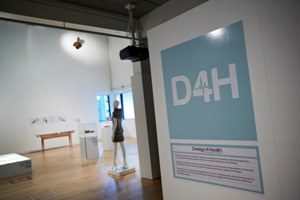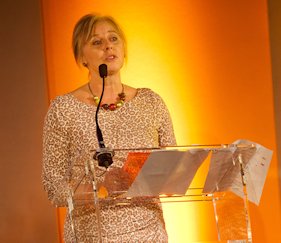Devices for Dignity recognises outstanding achievement at Medilink UK awards
The finest of the UK’s Life Sciences and Healthcare Technology sector have been honoured at the 2014 Medilink UK Healthcare Business Awards.
This year’s coveted National Institute for Health Research (NIHR) Devices for Dignity Healthcare Technology Co-operative (HTC) Outstanding Achievement Award was awarded to Moor Instruments.

Moor Instruments is a market leader in providing laser Doppler imaging system for tissue blood flow assessment. Over the past decade, they have advanced laser Doppler imaging technology from a purely research tool in to a dedicated medical device for burn assessments in clinical settings.
The Medilink UK Awards, this year held at the Med-Tech Innovation Expo, at the Ricoh Arena, Coventry, is an annual event that celebrates cutting edge technologies, outstanding business achievements and international successes across the UK’s Life Sciences sector.
Winners from five categories – Start-up, Innovation, Partnership with the NHS, Export Achievement and Outstanding Achievement – were honoured at the prestigious event.
The Awards was hosted at the end of the first day of the exhibition, as part of the Medical Device Manufacturing Conference, with leading professionals from the Life Sciences sector, UK government, research institutes and overseas organisations in attendance.
Gary Stapleton, Medilink UK’s new Chairman and Business Director of 3M Health Care Business Group, West Europe, said: “We are proud to celebrate the considerable achievements of companies who have continued to push the boundaries of healthcare innovation for the benefit of business, healthcare systems and most importantly the patient.
“I would like to extend a massive congratulations to all of our winners and shortlisted companies. Their achievements should give us great encouragement for the future of our industry.”
The nominees for the awards were derived from the regional awards which were selected by Medilink’s network across the UK.
Winner of the Nabarro LLP Start-up Award was Derbyshire-based FLi Medical Innovations, for its novel piece of surgical equipment which assists surgeons in an approach for Total Hip Replacement, known as the ‘Direct Anterior Approach’. Independent assessments have indicated an annual saving to the NHS of over £300m if this technology is widely adopted.
Crewe-based Medtrade Products Limited won this year’s HGF Innovation Award for its unique Celox Rapid Gauze – a new haemostatic bandage used in traumatic injuries. The gauze stops the most severe bleeding after only 60 seconds of pressure and takes around 30 seconds to pack into a deep wound. It is designed for emergency services such as ambulance paramedics as well as police forces and military medics.
The UK Trade & Investment Export Achievement Award was awarded to Halifax-based Sidhil. Sidhil is a volume manufacturer of beds for acute and community applications. Continued investment has seen the company branch out successfully into the export market with a number of major contract wins.
The Medilink UK Partnership with the NHS Award was awarded to Zilico Ltd. Zilico is developing the next generation of diagnostics that utilise electrical impedance spectroscopy to provide accurate and real-time results. Its flagship product, ZedScanI, is in the area of cervical cancer diagnostics and received its CE mark in September 2013.





 The Medilink Healthcare Business Awards, held at the Cutlers’ Hall, Sheffield, celebrated the achievements of the leading healthcare businesses in Yorkshire and Humber.
The Medilink Healthcare Business Awards, held at the Cutlers’ Hall, Sheffield, celebrated the achievements of the leading healthcare businesses in Yorkshire and Humber.